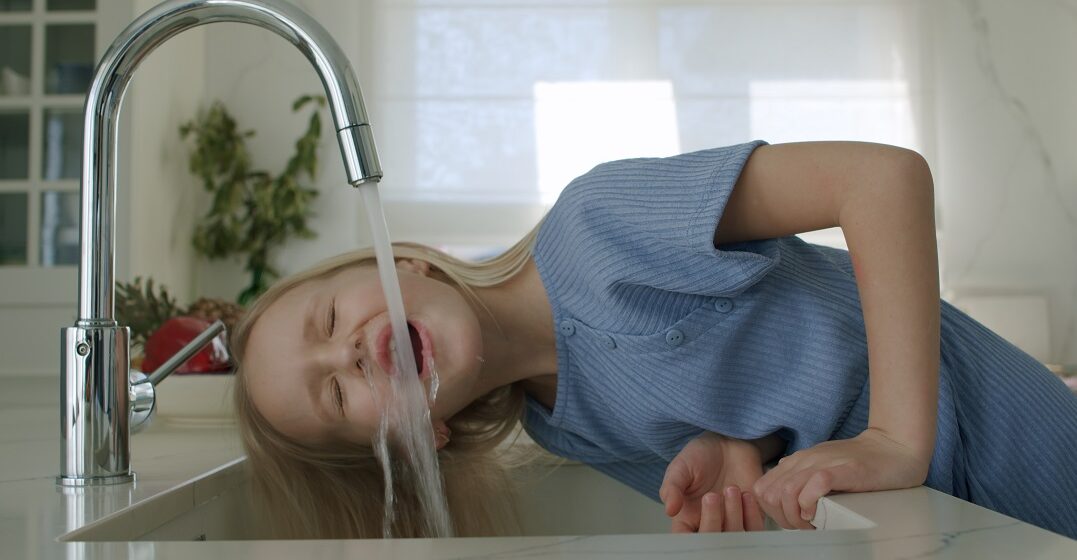Updated on August 7, 2023

Can you drink tap water in Germany?

Not so keen on the famous German beers or other alcohols, but still thirsty for a refreshing drink? Water might be the simplest choice — and it happens to pair well with pretty much all of Germany’s traditional dishes. But you may be wondering whether it’s safe to drink tap water in Germany. Given that Leitungswasser, the German word for tap water, actually means “plumbing water,” you may have some reservations!
In this guide, we’ll explore just how healthy and clean Germany’s tap water is, where it comes from and how it’s processed. And to wash it down, we’ll learn a few useful phrases to order water in restaurants.
The answer is, quite simply, yes. In fact, Germany features among the countries with the best tap water in the world. This is in large part due to the fact that tap water is highly regulated in Germany and has been for several decades. Ever since 1957, the German Federal Environment Agency has monitored tap water and has consistently found it to be of very high quality.
A little more recently, in 2001, the German government set up die Trinkwasserverordnung, a water ordinance managed by the Ministry of Health. This German legal measure imposes strict regulations to ensure the cleanliness and safety of tap water. For instance, no hard chemicals such as fluoride or chlorine can be used to purify tap water.
That being said, tap water may taste a little different depending on the German city or region you happen to be in. Harder water may not be as pleasant to drink, but it doesn’t present any risk in terms of health. It’s also important to note that you should avoid drinking tap water in a few specific places, such as in fountains and the bathrooms of trains. If you see a sign mentioning Kein Trinkwasser (No drinking water), then you should not drink that specific tap water.
The sources of German tap water also play a role in defining the overall pleasantness of its taste.
According to a report from the Umweltbundesamt (Federal Agency for Environment), about 62% of tap water originates from groundwater, i.e. water from rain, rivers and lakes that seeps into the ground. Coming next is spring water, which is water emerging to the surface. Such water actually needs a greater degree of purification than groundwater. Last but not least is surface water, which is taken from the lakes, rivers and dams you may encounter when hiking in Germany.
Tap water can also be processed in two artificial methods. Artificially recharged groundwater is obtained by increasing the amount of groundwater through human-controlled means. Bank filtration, on the other hand, allows infiltrating water from lakes and rivers into the groundwater stream.
Regardless of where it originates, German tap water always undergoes a thorough analysis to determine whether it needs further processing. Only after the water is deemed safe for public consumption will it be released into the pipelines and all the way to your home.
In spite of all these processes, some German people still prefer to filter their water. Even though tap water is perfectly safe, filtering it may give it a better taste when you drink it. Filtering is also useful if you plan to use water in kitchen appliances, such as a coffee maker or tea kettle. This is to reduce the amount of limescale that may cause damage over time. In fact, the harder the water, the safer (and better) it is to filter it.
Strangely enough, even though tap water is perfectly fine to drink in Germany, most people prefer to buy or order bottled water. This is not so dissimilar to French people’s attitude towards tap water. With over 500 brands on the market, you have plenty of choices among Sprudelwasser (sparkling water), stilles Wasser (still water) and Mineralwasser (mineral water). Unless you insist on tap water, most German restaurants will serve you bottled water.
If you’re a beginner in German, the following phrases will help you to order water in a restaurant:
| German | English |
| Könnte ich bitte eine Flasche Sprudelwasser bekommen? | Can I get a bottle of sparkling water, please? |
| Für mich, ein Glas mit Leitungswasser, bitte. | For me, a glass of tap water, please. |
| Ich hätte gern ein Glas Mineralwasser. | I’d like to have a glass of mineral water. |
Even if most German people prefer bottled water and restaurants traditionally don’t serve tap water, there’s actually no risk in drinking straight from the tap. There are strict regulations to ensure tap water in Germany comes from safe sources and is treated appropriately in order to be drinkable. You may go further by filtering tap water, but that’s only to make it less hard and a bit tastier.